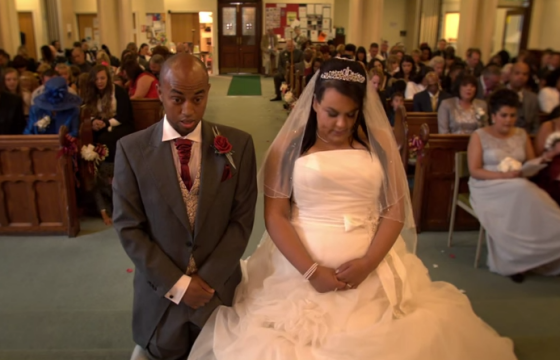A sermon on the prayer Jesus taught - and the things we learn by and with our heart: Genesis 18:20-32; Colossians 2:6-19; Luke 11:1-13
Perhaps it was pages of French vocab, our times tables or the lines of a school play?
Did we learnt the lyrics of a song, the words of a poem, wedding vows, the rhyme of a hymn…
Remembering is one thing: learning by heart quite another.
Learning by rote is one thing: learning with the heart, quite another.
If we’ve learnt something ‘off book’, the poem, the hymn, the prose, the lyrics become part of us. We carry it with us. We live with it. Catching a new meaning in a familiar phrase.
The expression of another becomes our life-long companion; meaning more to us than they dared imagine: their words bury into our hearts and become our thoughts; their thoughts our prayers.
And what more profound heart language do we have than the words of the prayer that Jesus teaches to his disciples; words spoken not just on the human heart, but heart by the heart of God.
“Our Father” is known by heart in hundreds of languages over thousands of years. Not a second goes by without it being spoken somewhere across the world. It takes shape on our lips day by day.
It’s heard at Eucharists and weddings, at morning prayer and Evensong, at school assemblies and acts of remembrance, at hospital beds and in crematoria. The prayer of one heart beating along with the prayers of another.
Today we are invited into a moment of prayerful communion.
Jesus had been praying in a certain place.
The beloved Son had spent time in deep loving attention to his Father.
Touching the earth: kneeling, sitting, abiding with us.
Reaching to heaven: a posture of perfect love and trust.
Jesus’ heart was at one with his Father; beating in time with our longings too.
And a disciple says, ‘teach us to pray’.
And the teacher gives the language of the heart.
This prayer memorable in its rhythm and simplicity. It draws us into a rhythm of intimacy, holiness and praise. It names the simplicity of our need for bread, for mercy, for strength.
As we pray it we bless God’s holy name; our wills and identity aligned with love. We pray for the world, for homes, for friends, for communities and for ourselves, that our lives will be shaped by God’s will.
We ask for what we need: for mercy, protection and forgiveness; for daily bread, for strength and sustenance; for grace to bear the needs of others and humility for others to support us.
This is a practical way of praying: noticing what gives life; and what drains our energy; to discern glimpses of goodness; to name hurts or selfishness; for our lives to be shaped by God’s love; allowing heaven to be known on earth.
Jesus embodies this prayer and proclaims the Kingdom as he breaks bread and heals; forgives and challenges; blesses and encourages.
He also tells a story to help us remember. It’s a story about friendship and bread; temptation and community. We might liken it to a commentary on prayer.
One writer calls it the parable of the ‘pushy pal’ - a late night conversation with Mr Host and Mr Sleepy. We might add in Mr Guest. Together they invite us into a circle of friendship which echoes the heartbeat of the Lord’s Prayer.
Mr Host has been woken from sleep by Mr Guest, who finds a welcome in his friend’s home.
However Mr Host has no food at hand to feed this late night traveller.
He calls out to his friend, Mr Sleepy, just as Mr Guest called out to him.
At first Mr Sleepy is not terribly keen to respond: it’s late, the kids are asleep, the doors are locked.
Why would he abandon the warmth of his own bed to help a friend provide for a guest?
My Host is persistent. Mr Sleepy does the right thing. Mr Guest will have breakfast, his daily bread.
This is a circle of friendship and blessing; of hospitality and reciprocity.
To pray ‘Our Father’ opens our hearts that we might receive what we need; and that we might not withhold goodness from others.
Human beings may not be perfect, but we do know what love looks like.
In Genesis Abraham makes his own petition of mercy. A petition which names the cries of our hearts and find in the heart of God an echo. Sodom and Gomorrah’s sin had been a failure to show hospitality; and yet when one cries out for the many, such a lack is met with compassion.
The persistence of a human heart reveals the heart of God.
We too are to ask for what we need: for the needful gifts of grace.
In the power of the Spirit we are invited to share in this pattern of life: discovering our true identity and purpose; aligning our wills with God’s; breath by breath; living lightly and intensely moment by moment.
It’s challenging and life giving. And even when we stumble and fall, as we surely will, God’s Spirit still cries within us: Our Father…
This prayer changes us. The language of our hearts nudges us out of selfishness. It reveals the power of love divine - in life, death and resurrection, as Paul reminds the Colossians.
Perhaps it was in praying Our Father that they were built up in Christ; being nourished as one body. Perhaps we have a common heart language which resists the deceits and falsehoods of the world and draws us into the fullness of new life.
We reach for the words of the Lord’s prayer when there is nothing left to say; when we cling to another in heartrending grief.
We pray with our hearts as we prepare to receive afresh the wafer thin bread of life that strengths us, the ligaments and sinews of Christ’s body on earth.
We pray it with hope and trepidation at the beginning of a day; in exhaustion and thanksgiving at its end. It’s familiar rhythms lending us an inner stability.
The Lord’s Prayer teaches us how to pray. It is a living text. Simple enough to be memorised by children; broad enough for us to grow into; ordinary enough to name our basic needs; engrained enough to out last our memory, profound enough to sustain a lifetime of praying.
Our Father in heaven: we crawl into bed, exhausted.
Hallowed be your name: as the kettle boils
Thy Kingdom Come: in an overcrowded A&E
Thy will be done: as we go to the gym.
On earth as it is in heaven: as water is handed to the homeless.
Give us this day our daily bread: as the tube trundles into the tunnel.
Forgive us our trespasses: when we go to a difficult meeting.
As we forgive those: as we text the friend we hurt.
Who sin against us: as a policeman responds to the next call.
And lead us not into temptation: when we do the weekly shop.
Deliver us from evil: as we gather for worship.
For thine is the Kingdom: at a school leavers’ service.
The power and glory: at a baptism.
For ever and ever: at the end of a wedding.
Amen: said and sung, for this prayer is for everyone.
We add our voices today: in the silence of our hearts; in words and music: Our Father…
© Julie Gittoes 2019












